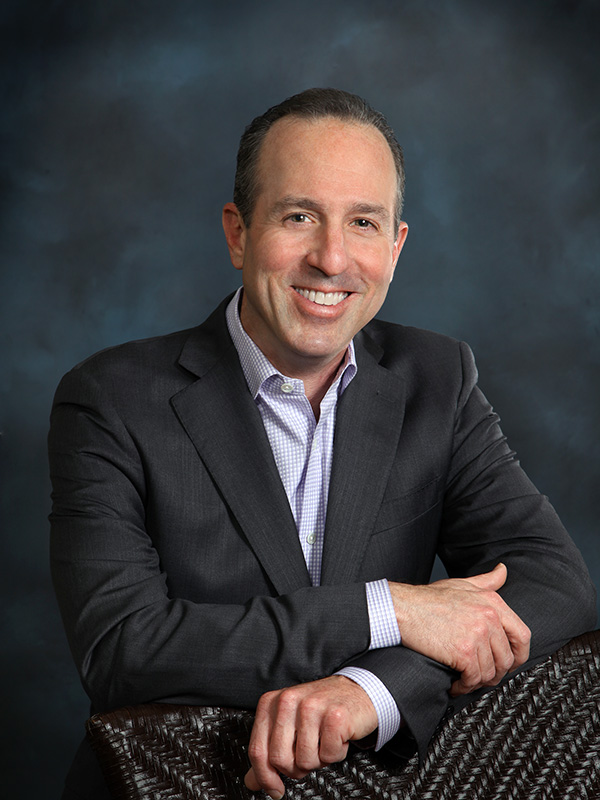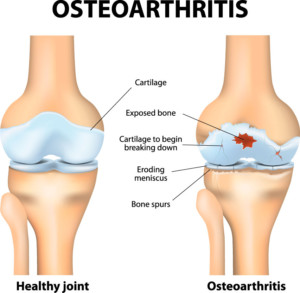Knee Arthritis Specialist

Are you experiencing pain and stiffness in you knees? If so, you may have arthritis in your knees. Knee arthritis develops over time and symptoms can increase as the condition progresses. Knee arthritis specialist, Dr. Mark Getelman provides diagnosis and both surgical and nonsurgical treatment options for patients in Los Angeles who have developed knee arthritis. Contact Dr. Getelman’s team today!
Knee Arthritis Overview
The knee is considered the strongest and largest joint in the human body. The knee joint allows an individual to participate in athletic activities, perform work-related movements and enjoy everyday activities. Cartilage lines the ends of the bones throughout the human body, allowing the bones to glide smoothly and pain-free over each other. Cartilage does not have its own blood supply so it does not have the natural ability to heal itself as it degenerates or after an injury. When the cartilage lining the ends of the bones in the knee starts to wear down from overuse or the natural aging process, arthritis of the knee sets in, commonly known as osteoarthritis. This knee cartilage degeneration and injury causes patients to experience pain, swelling and decreased range of motion. Greater Los Angeles orthopedic knee specialist, Dr. Mark Getelman with offices in Thousand Oaks and Van Nuys is fellowship trained and highly experienced at diagnosing and treating knee arthritis.
Knee arthritis develops over time and symptoms can increase as the condition progresses. As the cartilage wears down, it becomes rough and frayed and the protective space between the bones decreases. This often leads to bone rubbing against bone, eventually leading to painful bone spurs in some patients.
Knee Arthritis Symptoms
The hallmark symptoms of knee arthritis include pain, inflammation, swelling and decreased range of motion. In many patients, the pain associated with this knee cartilage injury is worse after vigorous activity, after sitting for an extended period of time or first thing in the morning. The knee joint may also lock during movement or have a creaking, clicking or grinding noise (crepitus). In severe cases of arthritis of the knee, loose fragments of cartilage (loose bodies) may break off and interfere with normal knee function.
Knee Arthritis Diagnosis
In order to reach a knee arthritis diagnosis, Dr. Getelman will perform a thorough physical examination and review a patient’s medical history and symptoms. He will examine the affected knee for joint swelling, warmth, redness, tenderness, range of motion, instability and pain. He will also perform a set of X-rays to examine the joint’s structure for a knee cartilage injury and/or other knee injury. An MRI if not typically needed to make the diagnosis of osteoarthritis.
Knee Arthritis Treatment
There is not a cure for arthritis of the knee, but Dr. Getelman can assist patients with alleviating painful symptoms with a non-surgical or surgical approach.
Non-Surgical
The initial treatment for knee arthritis typically begins with a conservative approach. Dr. Getelman may recommend a combination of activity modification, physical therapy, use of heat and ice, anti-inflammatory medications and a variety of other medicines designed to alleviate pain and inflammation. Other conservative treatment options include:
Viscosupplementation Treatment – a technology designed for osteoarthrosis using hyaluronic acid injections. With the arthritic knee, the synovial fluid develops a lower viscosity and elasticity than that of a normal joint resulting in pain. This therapy results in visco-supplementation whereby the hyaluronate is injected into the knee in an attempt to improve the viscosity and elasticity of the arthritic joint. This is felt to work by improving lubrication within the joint and possibly stimulating the production of endogenous hyaluronate by the synovial cells of the affected joint. The adverse effects of this therapy are few and are mainly related to local inflammation at the site of injection into the knee joint. The therapy consists of 3 to 5 weekly injections into the affected knee. It is expected to provide relief for up to 6 months and can be repeated on an annual basis.
Platelet Rich Plasma Therapy – PRP injections can provide significant pain relief and may delay the need for surgery by injecting a concentrate of platelet-rich plasma protein derived from the patient’s own blood into the affected knee.
Surgical
If arthritis of the knee is too severe or not relieved with conservative measures, a surgical knee cartilage repair approach may be needed. Ultimately a Knee Replacement surgery may be required but there are other more minimally invasive procedures for some isolated arthritic conditions that may be offered. Arthroscopic techniques offered by Dr. Getelman include:
- Debridement (shaving): Arthroscopic instruments are used to smooth the shredded or frayed cartilage, leading to a decrease in friction and irritation.
- Microfracture: A surgical technique used to treat damaged areas of articular cartilage in the knee by making multiple small holes in the surface of the joint to stimulate a healing response.
- Allograft transfer: A procedure used to replace the damaged areas with a cartilage-bone unit that is procured from a donor. This technique is generally reserved for large areas of cartilage damage and where the underlying bone is damaged.
- Autologous or Allograft Chondrocyte Repair: This technique involves removing a small piece of cartilage and sending to a laboratory where additional cartilage cells are cultured and grown from the sample. Once received from the laboratory, the new cartilage cells are implanted by an injection into the damaged area. These cells eventually grow into new, healthy cartilage. Getelman is currently a clinical investigator for the Neocart Trial and this may be something that can be discussed. Alternatively, fetal or juvenile cartilage has become available as well and may allow for a single stage procedure.
For more resources on a knee cartilage injury such as knee arthritis, contact the Van Nuys and Westlake Village, California orthopedic office of Dr. Mark Getelman- fellowship trained knee specialist.

